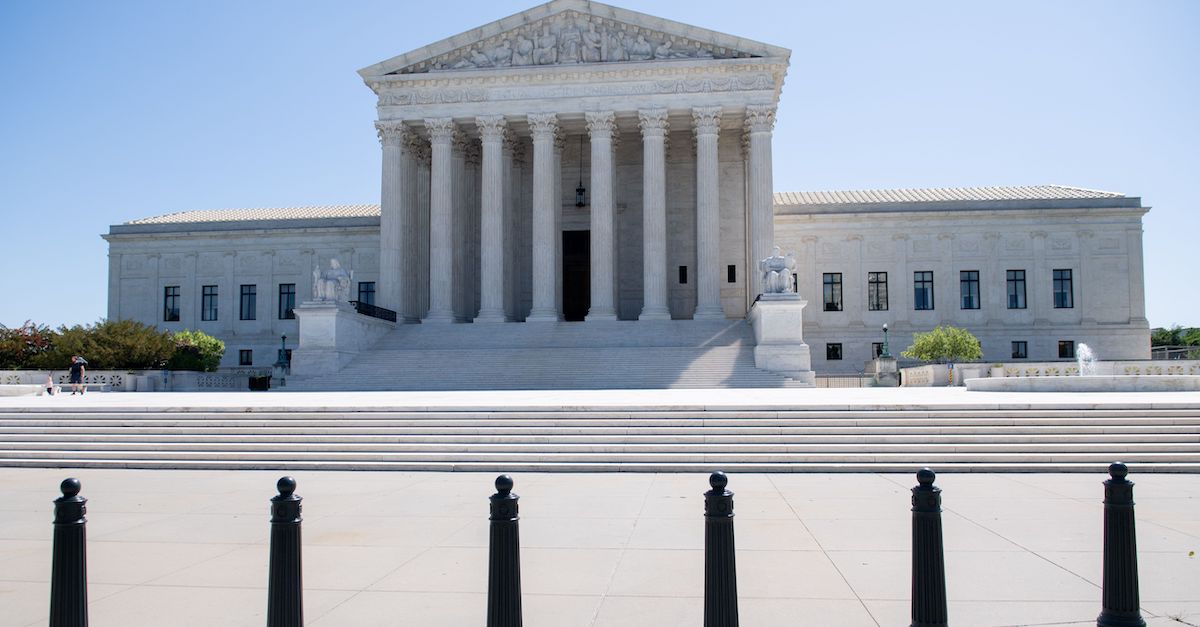
The U.S. Supreme Court on Thursday declined to issue a stay sought by the Republican National Committee (RNC) against Rhode Island’s mail-in voting plan amid the coronavirus pandemic.
After a consent decree relaxed the two-witness requirement for absentee voting ahead of the election, the RNC applied at SCOTUS for a stay, citing a recent Alabama case. In July, a 5-4 Supreme Court blocked a lower court order that had eased witness requirements in Alabama.
The RNC, in its application, asserted that “Rhode Island’s witness requirement mirrors Alabama’s.”
But the Supreme Court denied the RNC application for a stay in the Rhode Island case:
The application for stay presented to Justice Breyer and by him referred to the Court is denied. Unlike Merrill v. People First of Alabama, 591 U. S. ___ (2020), and other similar cases where a State defends its own law, here the state election officials support the challenged decree, and no state official has expressed opposition. Under these circumstances, the applicants lack a cognizable interest in the State’s ability to “enforce its duly enacted” laws. Abbott v. Perez, 585 U. S. ___, ___ n. 17 (2018). The status quo is one in which the challenged requirement has not been in effect, given the rules used in Rhode Island’s last election, and many Rhode Island voters may well hold that belief.
The order noted that conservative Justices Clarence Thomas, Samuel Alito and Neil Gorsuch would have granted that stay.
Election law expert and University of California, Irvine School of Law in Irvine Law Professor Rick Hasen previously told Law&Crime that he didn’t think SCOTUS would grant a stay in this case.
“This one is a bit different because it is coming off a consent decree and it is very close to the deadline,” Hasen said on Monday. “Less likely that Supreme Court will act even though it has as to other voting cases.” Hasen was proven correct on Thursday morning.
The ACLU responded to the news by calling the Republican Party’s tactics “unconscionable.”
“The Supreme Court rejected the Republican Party’s unconscionable attempt to undermine vote by mail and put thousands of Rhode Islanders at risk in the middle of a deadly pandemic,” Dale Ho, the Director of the ACLU’s Voting Rights Project, said in a statement.
Steven Brown, the executive director of the ACLU of Rhode Island, said that voting in America should not look like an episode of Survivor.
“We are very pleased that the Republican Party’s efforts to turn the fundamental right to vote into an episode of ‘Survivor’ has failed,” Brown said. “We are grateful that our vulnerable plaintiffs and others like them will be able to vote securely from the safety and privacy of their homes as they did in June, without needing to risk their health or lives. Today’s action is a victory for basic principles of democracy.”
Rhode Island’s primary election is September 8.
Colin Kalmbacher contributed to this report.
[Image via SAUL LOEB/AFP via Getty Images]